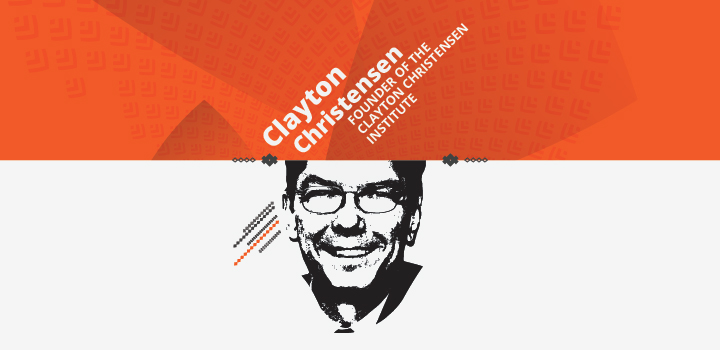Healthcare industry ripe for disruptive innovation.

In his 2008 book 'The Innovator's Prescription', Harvard Business School professor Clayton Christensen applied the principles of disruptive innovation to the broken US healthcare system - 10 years later, he reviews and updates the theory.
Nearly a decade ago, Clayton Christensen – along with Dr. Jason Hwang and the late Dr. Jerome Grossman, showed how disruption could transform healthcare. In their book 'The Innovator's Prescription', they carefully examined the challenges facing healthcare and proposed a set of clear and actionable solutions for improving systems and, thereby, health outcomes.
These solutions included providing personalised care at a lower cost with "precision medicine", improved quality, accessibility, and affordability using a disruptive business model, enabling better treatment of chronic diseases through patient networks, using new technology to diagnose problems and find solutions faster, and taking advantage of insurance and regulatory reforms to provide the best care possible.
10 years down the line, Christensen says that while healthcare has so far been largely immune to the forces of disruptive innovation, it is more necessary now than ever and there are finally promising signs of solutions in the marketplace.
In a publication written in 2017 with Andrew Waldeck and Rebecca Fogg, Christensen says that the U.S. healthcare sector is now by far the world's most expensive system per capita, with chronic conditions such as diabetes and heart disease accounting for more than 75% of total spend.
The paper, entitled 'How Disruption Can Finally Revolutionize Healthcare', is a plan for incumbents and start-ups to build a future of better health and lower costs. It shows why disruption has not yet taken hold in the delivery practices of hospitals and physician groups, and then demonstrates some of the disruptive solutions that have begun to surface.
While there has certainly been no lack of innovation in healthcare, most of the innovation over the past decade has been sustaining the industry, rather than disrupting it. Since 2000, more than $200 billion has been poured into healthcare venture capital, mostly in biotech, pharma and devices, while only a fraction of a fraction of 1% of such investments have focused on empowering and engaging consumers to play a more active role in managing their own health. Christensen says this is one of the issues that has made the healthcare industry impervious to even the strongest forces of disruption. "End users, the patients, have a hard time influencing the design of the end product and often lack control over the buying decision," he says.
Despite a system that is hesitant around change, there are examples where new disruptive care models are demonstrating real promise - a sign that the industry's resistance to disruption may finally be at a breaking point.
Harvard-trained doctor Rushika Fernandopulle, recognised a gap in the market for a health advocate to play the role of problem solver, a "health coach" who would do things that doctors typically don't do and at a lower cost. The coach meets with the patient prior to a visit to the physician, establishes goals, follows up with patients, answer questions, provides empathy and helps to solve problems. Since its founding in 2010, Iora Health has attracted more than $123 million in venture funding and operates 37 practices, serving 40,000 patients.
Despite regulatory uncertainty surrounding health care, Christensen says there is strong reason to believe that a Disruptive Healthcare Delivery System that delivers customised healthcare solutions to patients is today within reach.
Discovery Leadership Summit 2018
Join Clayton Christensen, Professor at Harvard Business School, and other inspiring minds at the 2018 Discovery Leadership Summit as they share strategies and insights on business, economics, behavioural science, healthcare, innovation and finance.
Related articles
A virtual consultation is just a tap away
In his opinion, Dr Sudeshan Govender, a General Practitioner in Tongaat, KwaZulu-Natal, believes the digital revolution will improve healthcare for both patients and healthcare practitioners
Opening hearts everywhere - Chris Truter's story
The Truters make some of Wellington's finest export wines. But their main claim to fame is winning an extended battle to save their son's life. Chris was diagnosed in-utero with Hypoplastic Left heart Syndrome, one of the most challenging of all heart defects.
Dodged winter's woes? Here's why the South African National Blood Service needs you more than ever
Have you managed to steer clear of a cold or flu so far? Give your immune system a thumbs up, and then consider heading to your nearest health Donor Centre or Mobile Blood Drive to donate blood. Here’s why.